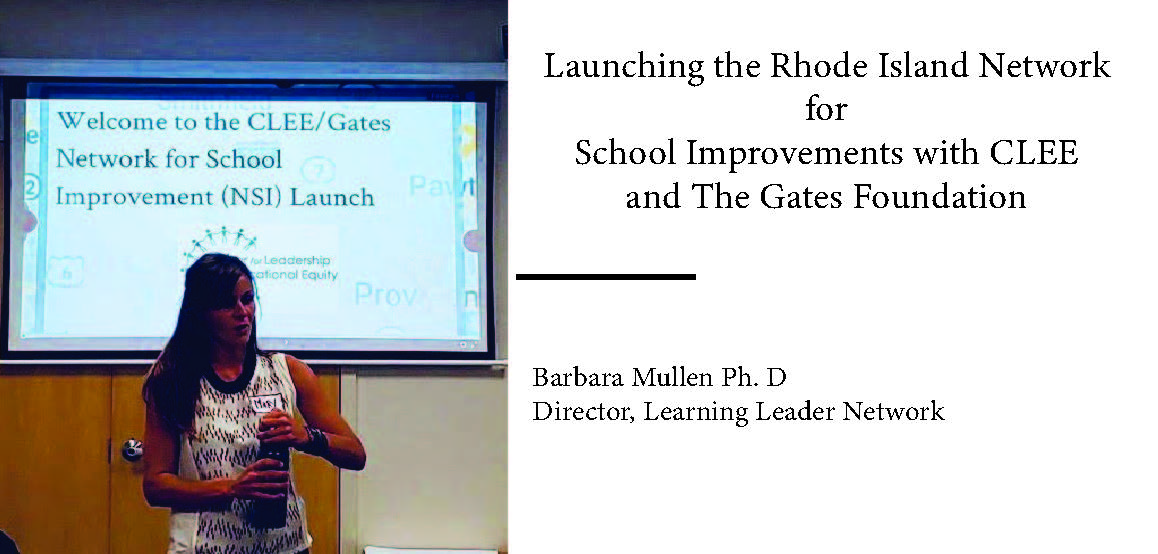In August, The Bill and Melinda Gates Foundation announced grants to 19 organizations in 13 states (AL, CA, GA, IL, MD, NY, OR, PA, RI, TN, TX, WI and WA). Five of the organizations are new partners for the foundation. The Center for Leadership and Educational Equity (CLEE) is one of the five new partners and a recipient of a Type 2 grant, totaling a 560k award.
An NSI is a group of middle or high schools working in partnership with an intermediary organization to use a continuous improvement process to significantly increase the number of Black, Latino, and low-income students who earn a high school diploma, enroll in a postsecondary institution, and are on track in their first year to earn a credential with labor- market value. School teams work collaboratively to identify, test, and refine solutions that target a problem and reach a goal common across the network. An NSI’s aim is to improve outcomes that are predictive of high school graduation and postsecondary success.
CLEE will convene a network of ten high schools throughout Rhode Island to focus on improving a network-wide aim/outcome: course completion in college-prep math courses for 9th grade students who are categorized as African American, Latino, Native American and/or Low Income. To achieve this aim, school teams (made up of six leaders -2 students, 2 math teachers, 2 administrators – one building level and one district level) will all focus on two primary drivers: (1) using facilitative leadership to create a receptive culture for change by implementing CLEE core leadership practices, and (2) engaging in rapid cycles of continuous improvement (identify a critical, intra-school equity gap in 9th grade math mastery to address, investigate root causes gap, create/implement an action plan to improve research-based strategies, and monitor and adjust based on the impact of short-cycles) to increase equity (close intra school gap) in 9th grade math mastery to drive toward the overarching aim of improving 9th grade math course completion. Finally, the CLEE team and organization will build capacity to continue and scale the network throughout the investment.
CLEE NSI Proposed AIM: The proposed AIM of the CLEE Network for School Improvement (NSI) is to improve the percentage of Black, Latino, and low-income students who are at 9th grade On-Track as determined by completion of a college prep math course (e.g. Algebra 1)
CLEE NSI Proposed Problem of Practice: Best ways for partner schools increase the total number of Black, Latino, Native American and Low Income students receiving course credit for college prep math courses.
CLEE NSI Proposed Theory of Action: If we elevate student proprietorship through spiraled facilitative leaders who use continuous (or transformative) cycles of inquiry, we will close equity starting in key equity gaps, address systemic inequities and improve postsecondary outcomes for Black, Latino, Native American and low income students.
What does the CLEE NSI look like for partner districts and schools? The big picture: a school that joins the CLEE NSI will form a team to work together and with the schools in the network to address the proposed problem of practice and reach the proposed AIM.
The following schools have signed on to join the CLEE Network for School Improvement:
Alvarez High School (Providence Public Schools)
South Kingstown High School
Woonsocket High School
Chariho Alternative Learning Academy
Central Falls High School
Trinity Academy for Performing Arts
Highlander Charter School
Urban Collaborative Accelerated Program
The Metropolitan Regional Career and Technical Academy
